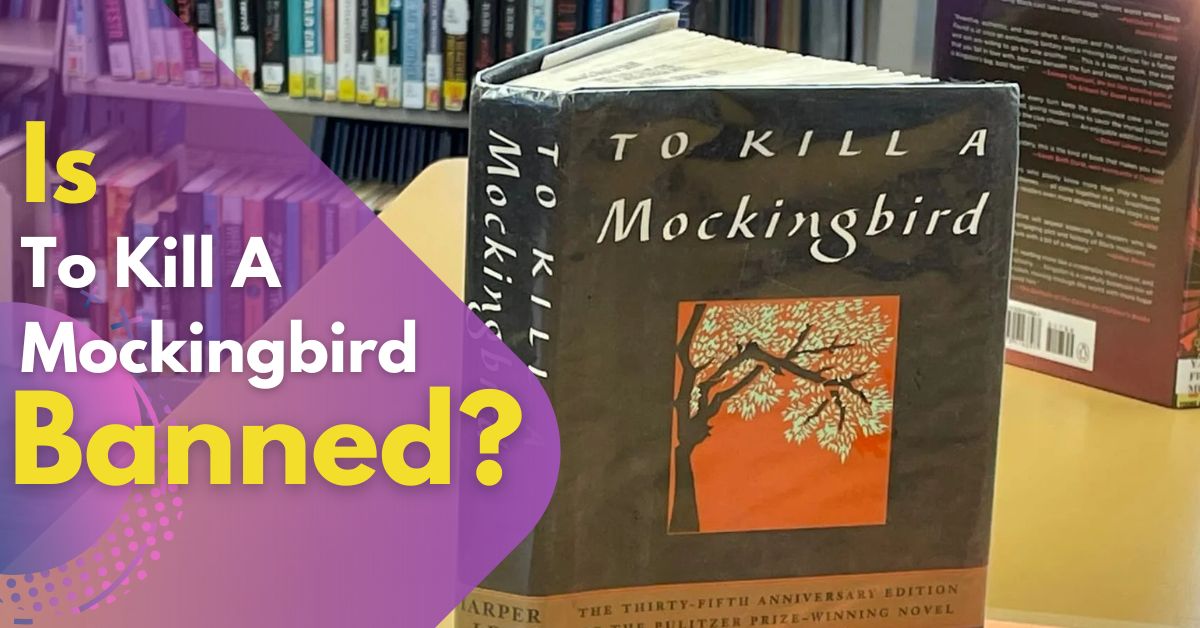To Kill a Mockingbird by Harper Lee has been the target of numerous attempts to ban it since the 1960s. And they have mainly failed since the 1960s. In one early case, the school board of Hanover County, Virginia, unanimously decided to remove the book in 1966 when board member W.C. Bosher discovered his son, a junior in high school, reading it.
The board did not provide much details as to why it made its choice other than Bosher’s statements that the book was “immoral” and “improper for our children.”
In the book, rape is discussed, and white Atticus Finch defends black Tom Robinson in court from a false accusation by a white lady, which drew letters in favor of removal to a local newspaper.
Clay Travis Tweeted:
To Kill A Mockingbird is being banned from schools for making people uncomfortable. Algebra made me uncomfortable, but they didn’t ban that!
— NUFF (@nuffsaidny) January 31, 2023
Lee herself equated the criticism to “doublethink” in George Orwell’s classic 1984 (which the board also removed), but she also sent the school board a check for a first-grade education and stated that the issue is one of illiteracy, not Marxism.
Today, protests against the book often focus on how it uses the word “nigger.” Characters (mainly white ones) use the word 48 times because in 1930s Alabama, that was the average number of conversations per day. The word is criticized in the novel at least twice.
These Articles Have Made a Lot of Noise Recently:
- YouTube Star PewDiePie Has Mysteriously Banned From Twitch Despite Not Broadcasting Live
- Is Tiktok Getting Banned in the U.S. 2023? What’s the Real Reason?
“Ignorant, trashy people use it when they think somebody is favoring Negroes over and above themselves,” her father Atticus responds to Scout Finch, a young girl, when she inquires as to what “nigger-lover” means. It has crept into general usage among some people, like ourselves, who are looking for an offensive term to describe someone.
In recent years, To Kill a Mockingbird has been contested or banned in places like Burbank, California, in 2020, Biloxi, Mississippi, and Accomack County, Virginia. The book’s language, according to a member of the Biloxi school board, made several readers “uncomfortable.”
NUFF Tweeted:
To Kill A Mockingbird is being banned from schools for making people uncomfortable. Algebra made me uncomfortable, but they didn’t ban that!
— NUFF (@nuffsaidny) January 31, 2023
However, not all books are meant to be cozy, and occasionally it’s necessary to step outside of one’s comfort zone in order to learn about significant subjects. These topics in this novel concern racism, justice, and tolerance.
Arne Duncan, the secretary of education under President Barack Obama, and the American Civil Liberties Union of Mississippi were two progressives who spoke out against the Biloxi ban for this reason.
Others claim that the novel has thin black characters and a complex about the white savior. The classroom is a terrific location to discuss and debate those criticisms, fair or not.
The private sector has filled consumer demand for the book despite decades of official sector banning efforts. Worldwide, more than 40 million copies have been sold.
